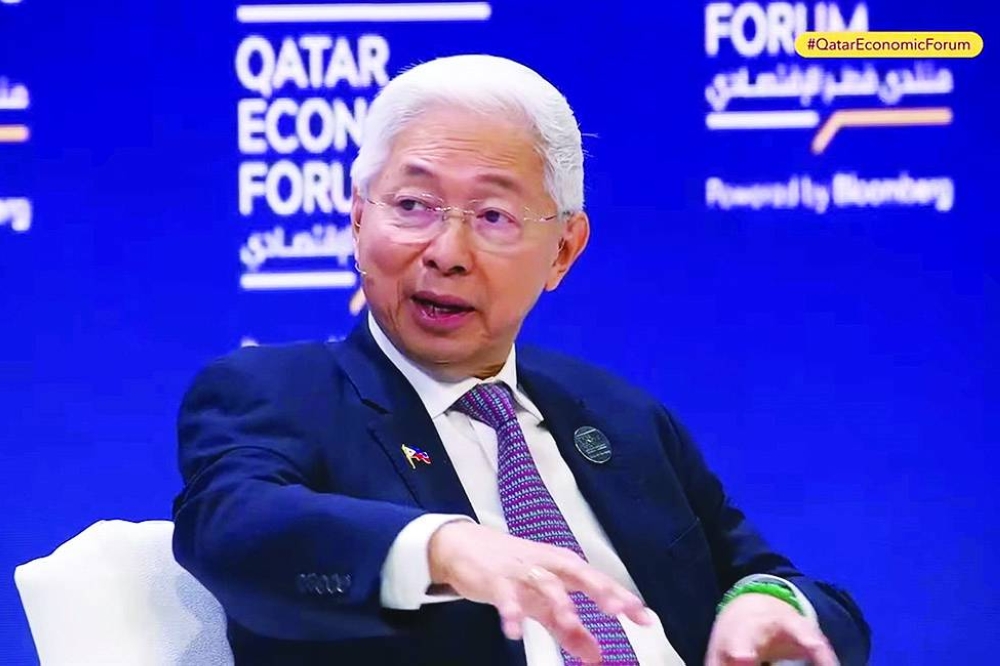
The Philippines’ top trade official has showcased the country’s economic growth during the fourth edition of the Qatar Economic Forum (QEF).
Secretary Alfredo E Pascual of the Department of Trade and Industry (DTI) was among the panellists during a discussion titled ‘Creating Competitive Economies’. He was joined by Moroccan Minister of Industry and Trade Ryad Mezzour and Turkiye’s Minister of Treasury and Finance Mehmet Şimşek.
During the discussion, Pascual said: “We’re very happy about the performance of our economy, which is among the highest in Southeast Asia. And we’re making sure that we have the policy environment that will sustain growth.”
According to Pascual, the administration of Philippine President Ferdinand “Bongbong” Marcos, Jr is focused on infrastructure development, improved connectivity, and strategic policy reforms, which ensure the country’s economic competitiveness in the region.
Central to this strategy, Pascual cited the continuation of the ‘Build, Build, Build’ programme, now named the ‘Build Better More’ programme with 185 flagship infrastructure projects worth over $161bn. He said the programme highlights the government’s intensified efforts to improve physical connectivity, digital infrastructure, water resources, health facilities, power, and agriculture infrastructure.
Pascual also said the Maharlika Investment Fund, the country’s first sovereign wealth fund, will provide additional support for these projects. With this, he encouraged the pursuance of public-private partnerships (PPPs), following the recent passage of the first PPP code, which provided a clear and predictable policy environment for private sector participation.
Another key priority presented is the improvement of physical connectivity within the country, as exemplified in projects like the Central Luzon Economic Corridor, which is set to enhance transportation links between key economic hubs, Pascual noted.
He said: “We will build railways to interconnect a port somewhere in the north to Clark in the middle down to Manila and then down to Batangas, and that will improve the connectivity within Luzon.”
The DTI secretary also highlighted that cyber connectivity in the Philippines is rapidly expanding through policy reforms, including opening sectors like telecommunications, utilities, and airports to 100% foreign ownership.
Highlighting the current administration’s commitment to upskilling the Filipino workforce, Pascual stressed the significance of partnerships with the private sector and international partners. Following this, he cited educational reforms that are also underway, such as the introduction of STEM in the education system.
Pascual said: “The country is actively engaging with major economic blocs, including the US, China, and the European Union (EU). The Philippines is also ensuring improved market access for our businesses through important trade mechanisms, exemplified through the ratification of the Regional Comprehensive Economic Partnership, the resumption of EU Free Trade Agreement negotiations, and the first round of Comprehensive and Enhanced Partnership Agreement negotiations with the UAE.”
Affirming the Marcos Jr administration’s continued commitment to foster economic growth and champion multilateral ties, Pascual added: “Our competitive economic environment, coupled with our game-changing reforms, signals our readiness to attract foreign investments and support sustainable development.”

